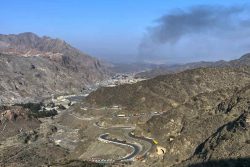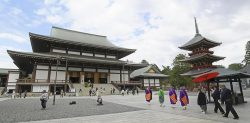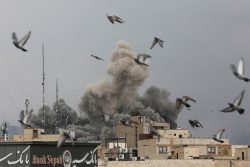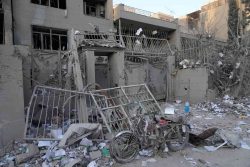A Volcano in Iceland is Erupting for the Fourth Time in 3 Months, Sending Plumes of Lava Skywards
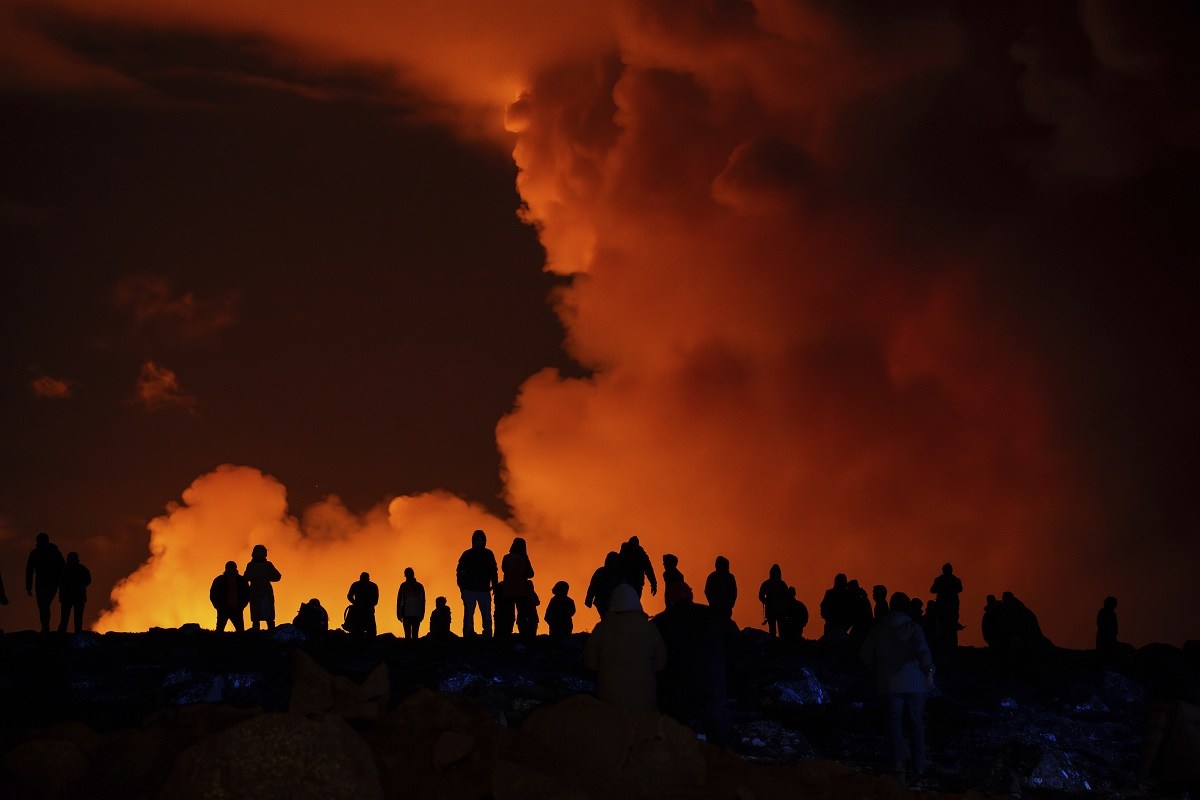
Spectators watch plumes of smoke from volcanic activity between Hagafell and Stóri-Skógfell, Iceland, Saturday, March 16, 2024.
15:03 JST, March 17, 2024
GRINDAVIK, Iceland (AP) — A volcano in Iceland erupted Saturday evening for the fourth time in three months, sending orange jets of lava into the night sky.
Iceland’s Meteorological Office said the eruption opened a fissure in the earth about 3 kilometers (almost 2 miles) long between Stóra-Skógfell and Hagafell mountains on the Reykjanes Peninsula.
The Met Office had warned for weeks that magma — semi-molten rock — was accumulating under the ground, making an eruption likely.
Hundreds of people were evacuated from the Blue Lagoon thermal spa, one of Iceland’s top tourist attractions, when the eruption began, national broadcaster RUV said.
No flight disruptions were reported at nearby Keflavik, Iceland’s main airport.
The eruption site is a few kilometers (miles) northeast of Grindavik, a coastal town of 3,800 people about 50 kilometers (30 miles) southwest of Iceland’s capital, Reykjavik, that was evacuated before the initial eruption in December. A few residents who had returned to their homes were evacuated again Saturday.
Grindavik was evacuated in November when the Svartsengi volcanic system awakened after almost 800 years with a series of earthquakes that opened large cracks in the ground north of the town.
The volcano eventually erupted on Dec. 18, sending lava flowing away from Grindavik. A second eruption that began on Jan. 14 sent lava toward the town. Defensive walls that had been bolstered after the first eruption stopped some of the flow, but several buildings were consumed by the lava.
Both eruptions lasted only a matter of days. A third eruption began Feb. 8. It petered out within hours, but not before a river of lava engulfed a pipeline, cutting off heat and hot water to thousands of people.
RUV quoted geophysicist Magnús Tumi Guðmundsson as saying that the latest eruption is the most powerful so far. The Met Office said some of the lava was flowing towards the defensive barriers around Grindavik.
Iceland, which sits above a volcanic hot spot in the North Atlantic, sees regular eruptions and is highly experienced at dealing with them. The most disruptive in recent times was the 2010 eruption of the Eyjafjallajokull volcano, which spewed huge clouds of ash into the atmosphere and led to widespread airspace closures over Europe.
No confirmed deaths have been reported from any of the recent eruptions, but a workman was declared missing after falling into a fissure opened by the volcano.
Top Articles in News Services
-

Survey Shows False Election Info Perceived as True
-

Hong Kong Ex-Publisher Jimmy Lai’s Sentence Raises International Outcry as China Defends It
-

Japan’s Nikkei Stock Average Falls as US-Iran Tensions Unsettle Investors (UPDATE 1)
-

Japan’s Nikkei Stock Average Touches 58,000 as Yen, Jgbs Rally on Election Fallout (UPDATE 1)
-

Japan’s Nikkei Stock Average Rises on Tech Rally and Takaichi’s Spending Hopes (UPDATE 1)
JN ACCESS RANKING
-

Producer Behind Pop Group XG Arrested for Cocaine Possession
-

Japan PM Takaichi’s Cabinet Resigns en Masse
-

Man Infected with Measles Reportedly Dined at Restaurant in Tokyo Station
-

Israeli Ambassador to Japan Speaks about Japan’s Role in the Reconstruction of Gaza
-

Videos Plagiarized, Reposted with False Subtitles Claiming ‘Ryukyu Belongs to China’; Anti-China False Information Also Posted in Japan



